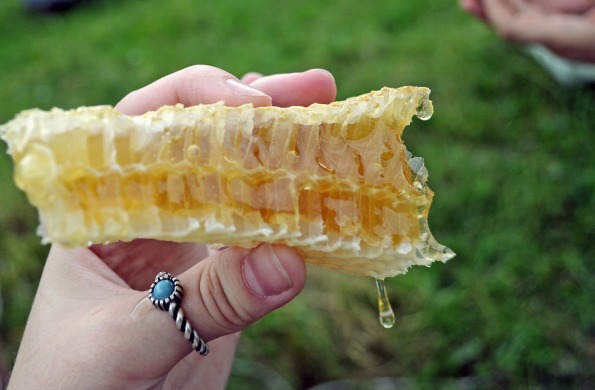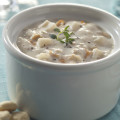**Disclaimer** While the word of wisdom gives us basic guidelines for health, it leaves the interpretation of those guideline up to the individual members. This blog is not intended to replace your medical professional or the divine revelation of the Word of Wisdom, but rather it is practical knowledge that I have accumulated over the years in my own pursuit of a healthier lifestyle which I am passing along in the hopes that it will benefit others.**
Bees and other insects pollinate plants by transferring pollen on the plant from the anther to the stigma where germination takes place. This process allows plants to be fertilized and food to grow. Honeybees turn this into a twofold process because unlike other pollinating bees, honeybees want the pollen to feed their young making their efforts extra beneficial. The honeybee makes more honey than it actually needs leaving a supply of delicious, healthful honey for the rest of us.
Buying quality honey may be harder than you think: So, like I’m always saying, you’ll need to do your homework.
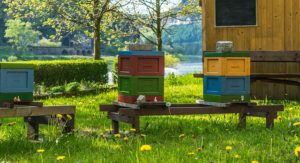
Beehives
Honey can be purchased in your local grocery store, but if you check the label it probably wasn’t harvested in your local area. In fact, unless you are willing to shop around a little the honey you buy may not even have been harvested in your own country.
There are different reasons for wanting to buy locally harvested honey from a farmers market, co-op, or natural grocer rather than at a supermarket. First, a study by Food Safety News found that 75% of the honey sold in large retail and grocery stores contained no trace of beneficial pollen and frequently had been mixed with corn syrup or other sweeteners to make it more affordable. Unfortunately like so many other food related issues, labeling laws have large loop holes that allow this to be done in a way that consumers are unlikely to know the difference.
Even more concerning is that, in the not so distant past, honey imported from some countries has also been found to contain lead and antibiotics. So buyers beware. If it seems like too good a price it probably is. In this case the saying is true; you get what you pay for.
Allergies
Another reason to buy locally harvested honey is the possibility that it may help with allergies. There are different opinions on this topic, but that is normal. When it comes to some kinds of allergies you are more likely to be allergic to things that you haven’t been exposed to. So if you eat honey that is made from the pollen of the local plants that are giving you problems, it may help your body to build up immunity to that pollen naturally. I have met several people over the years, myself included, who feel certain that eating local honey has helped their seasonal allergies.
When I moved to Pennsylvania I found there were a number of local flowering shrubs that we didn’t have back home. At first I thought nothing of it, but within a few years I was suffering from seasonal allergies, something I had never had before. After several years of increasingly severe symptoms I learned of the connection between local honey and allergy relief. I was tired of taking drugs that only masked my symptoms so I gave it a try. While the change was gradual, over time my symptoms subsided. And while I cannot prove it was from the honey, there was nothing else in my life that had changed so I give credit to nature for my cure.
Sweetener
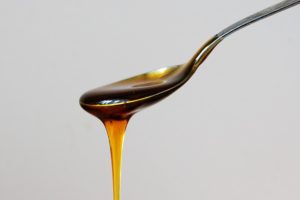
A spoonful of honey does a body good.
Even if you don’t have allergies, honey is a healthier choice for a sweetener as it has a lower glycemic index than refined table sugars. Honey also has anti-bacterial properties and contains 25 different oligosaccharides, which are carbs that feed the good bacteria in the gut. This in turn supports the immune system, digestion, immunity, and mineral absorption in the body. It also has anti-microbial properties and in a research study that was done in New Zealand honey was found to quickly clear infections when treating wounds, speeding up the healing process by stimulating cell growth.
According to naturopathic experts honey also has the ability to sooth sore throats, and boosts your bodies’ natural immunity due to its B vitamins, amino acids, minerals, magnesium, and calcium content. I know from personal experience that if 1 to 2 tablespoons of honey are taken once a day, at the onset of a cold, sore throat symptoms are quickly resolved, and recovery time is shorter than if it is not taken.
Another benefit of honey may be a better night’s sleep.
Your brain runs on glycogen. In order to produce glycogen your liver needs fructose, glucose and several vitamins and minerals. Honey contains all of these necessary components. Taking 1 to 2 teaspoons of honey before going to sleep provides enough consistent brain fuel for 7 to 8 hours of restful sleep.
Honey can help relieve symptoms of indigestion by reducing acidity in the stomach, and honey has also been found to improve the balance of gut micro-flora. Honey based facial cleaners can help to avoid breakouts. And it can be effective in reliving the itch of mosquito bites, though it is a sticky remedy.
However not all honey is the same. Micro filtering and heat yield a clearer product, but the process destroys some of its natural goodness, and a lower quality product will not yield the results you may be looking for. Due to its anti-bacterial properties it isn’t necessary for honey to be pasteurized. Doing so destroys some of the enzymes and other nutrients that you would be eating the honey for. So try to buy raw or minimally processed honey if you can.
A Word of Caution: NEVER feed honey of any kind to a child under the age of One.
The American Academy of Pediatrics recommends that raw honey not be given to infants under the age of one because of the possibility of it becoming infected with bacteria that can cause botulism. Once a child reaches the age of 1 their digestive system is mature enough to kill any botulism germs. Pasteurization of honey, however, does not guarantee that this will not happen so it is best to err on the side of caution and not give small children honey of any kind.
So What Is Raw Honey?
Raw Honey has more to do with temperature not texture or color: There are different methods of processing honey, and each will affect the honey differently. Bees actually work constantly to maintain a temperature that doesn’t go above 95° F in the hive. So as long as the honey is not heated above that temperature it can be filterd or unfiltered and still contain the full range of enzymes, antioxidants, amino acids, yeast, vitamins, minerals, and plant based essential oils that the honey would naturally have.
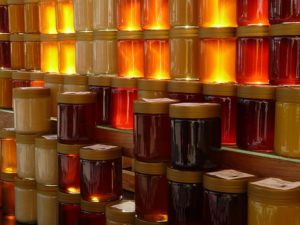
Honey Jars for Sale
Raw unfiltered honey- will have parts of the honeycomb, pollen, and other small bits from the hive in it. Basically it is just what you would get if you were to take it straight from the hive to your dinner table.
Strained raw honey- squeezes the honey through cheesecloth like material. This allows it to retain its beneficial elements, including the pollen while giving it a smoother more consistent texture.
Filtered honey- is a different process however, with a very different product. In order to make the honey easier to work with it is heated to high temperatures. The higher the temperature the more liquid the honey will become, but a temperature over 95° F will destroy most of the enzymes in the honey leaving a less beneficial product behind.
Pressure Filtering- takes this process a step further, not only heating the honey well beyond 95° F, but also using a filtration system that removes all of the pollen leaving a product that is little more than honey flavored syrup.
There are only two reasons why Pressure Filtering is used:
- Because the American consumer generally doesn’t know any better, and is drawn to honey that is highly processed, because it is light and clear.
- Because it may be imported honey that has come from a questionable source. Honey can be traced to its source by analyzing the pollen, so by removing the pollen they may be attempting to hide its source.
Either way, if you want real honey that will benefit your family you do not want to buy Pressure Filtered honey.
Organic
Most large grocery and big box stores only carry the less expensive highly processed honeys. The one exception would be if they carry organic honey. Generally it is a bit of a stretch to call any honey organic as it is extremely difficult to know for certain where the bees have been to gather the nectar for that honey. If it is labeled organic however, you can be fairly certain that the way it has been processed will have been such that it will have retained its benefits even if the bees may have landed on a few non organic flowers in their travels.
Bees
Bees are fascinating creatures that provide essential services that maintain the existence of life on this planet. Queen bees lay about 3,000 eggs per day. So the population of the hive increases exponentially as the summer progresses. But the use of pesticides and reduction of their habitat reduces their numbers making it more difficult for bee keepers to produce honey.
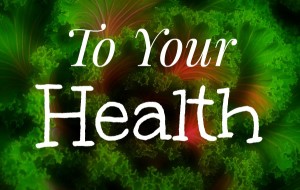
To read more of Denise’s articles, click here.
The health of the hive can also be impacted by mites that carry disease, or new methods of crop production. The health of the hive will in turn affect the growth of crops if there aren’t enough bees to fully pollinate the various plants in the area. So keeping the bee population healthy is essential.
So when you see that jar of honey in your cupboard, don’t take it for granted. A lot of effort has gone into producing it. And the way we live our lives and the way we affect our environment may have a direct impact on how available it will be in the future.
Resources:
http://www.rodalesorganiclife.com/food/6-things-you-need-to-know-before-you-buy-honey-again/slide/3
http://www.benefits-of-honey.com/honey-remedies.html
http://www.swansonvitamins.com/blog/guest-authors-on-natural-health/raw-honey-the-complete-story
http://www.foodsafetynews.com/2011/11/tests-show-most-store-honey-isnt-honey/#.V2WE3xJW4Zw
http://empoweredsustenance.com/raw-honey-definition/
About Denise Mastrocola
Denise is a Michigander turned Pennsylvanian, who has been writing stories since Elementary School. Denise won an award at the annual Lansing Youth Talent Show, when she was in 10th grade, for a short story entitled Procrastination is Fatal, but didn’t decide on writing as a career until she was 28 years old. While homeschooling her older children she spent 4 years working through a course from The Institute of Children’s Literature.
Through the years Denise’s children have had a variety of health issues, many of which have been linked to various sensitives; having spent more than 20 years researching and trying different things Denise has a boots on the ground view on healthier living.
Denise currently writes for 2 blogs and has several books in different stages of completion. She is planning to break ground in e publishing, and hopes to have her first Historical Fantasy book which is set during the renaissance, “Lisa, My Lisa?” ready by the first of the year.
Twitter •

